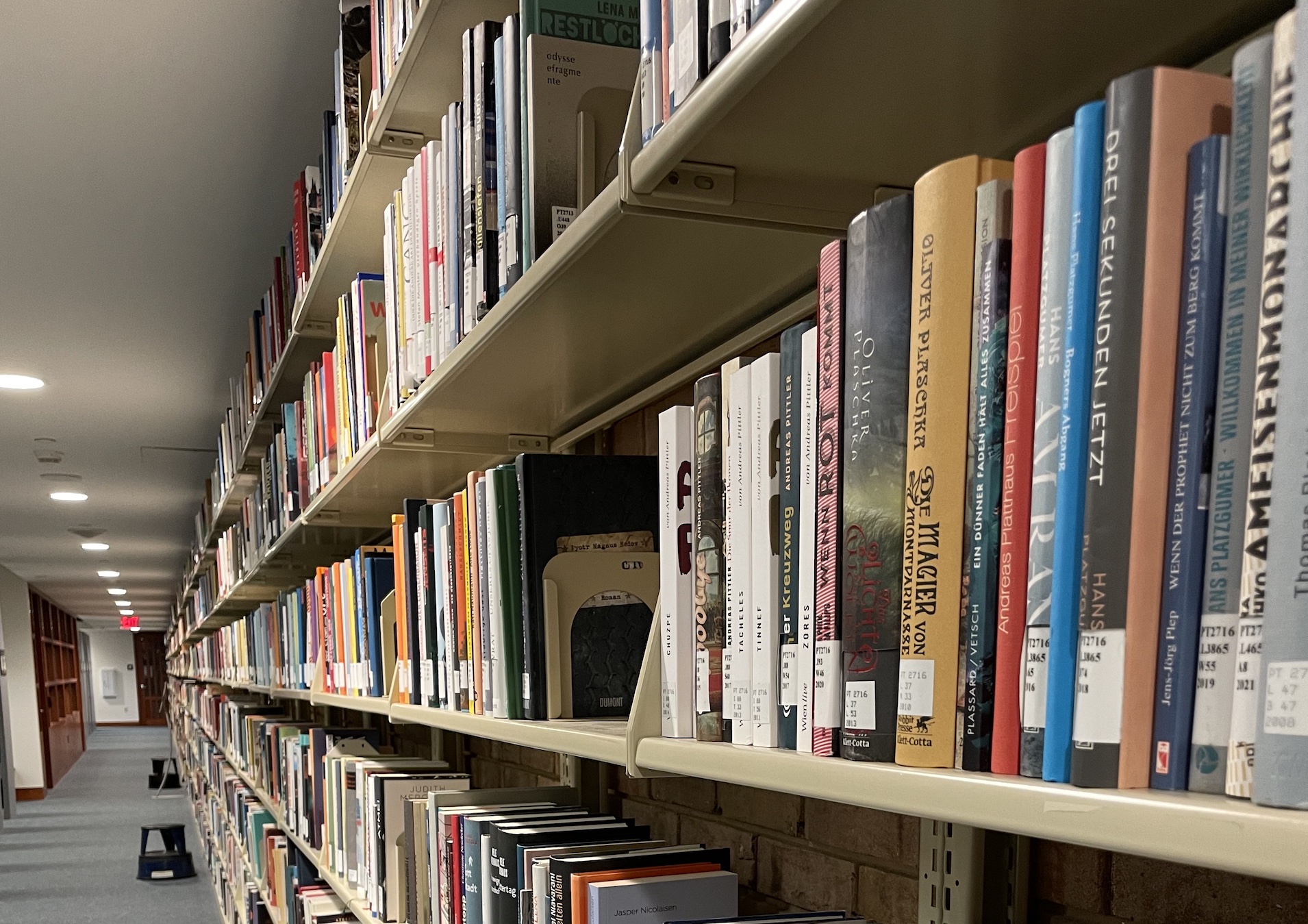
The Mike Lützeler Contemporary German Literature Collection
Visitors to John M. Olin library wandering the stacks of Level A, where most of our circulating collection of world literature is held, may be surprised to find a seemingly endless row of German-language literature, including poetry, fiction, essays, and literary magazines, much of it written in the last forty years.
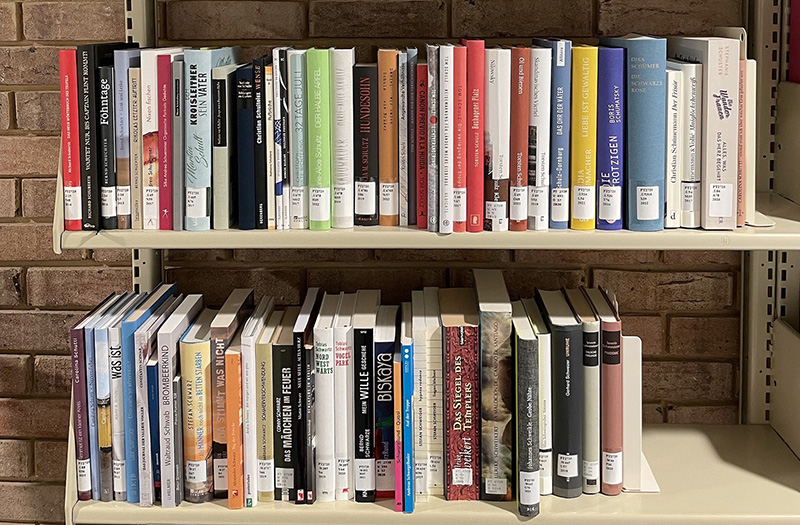
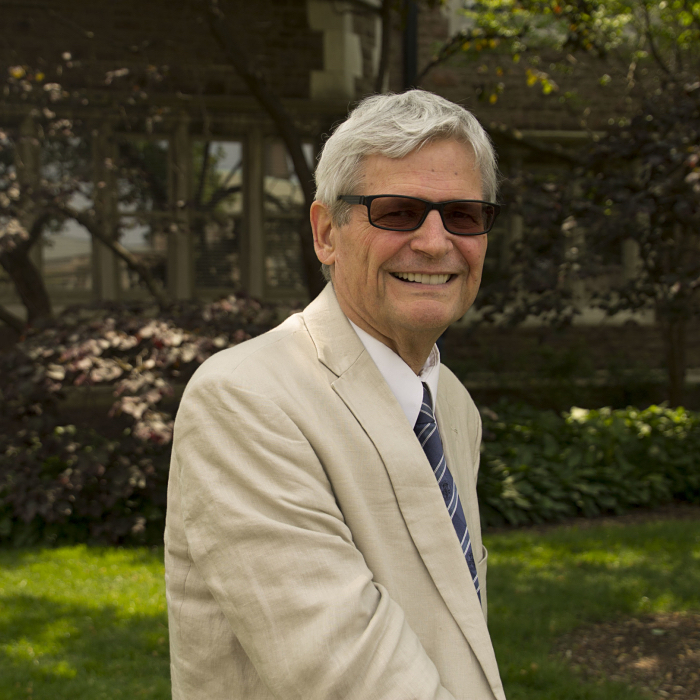
The collection results from the vision of Professor Emeritus Mike Lützeler, a world-renowned specialist in modern and contemporary German literature. In the 1980s, he realized that relatively few North American libraries were collecting literature from Germany, Austria, and Switzerland, with potentially dire consequences for the study of contemporary German literature here. In 1984, he founded the Max Kade Center for Contemporary German Literature, which he directed until his retirement in 2022. For decades under his keen leadership, it has funded an impressive writer-in-residence and critic-in-residence program. But perhaps Lützeler’s most unique and astounding achievement under the auspices of the center is the contemporary German literature collection.
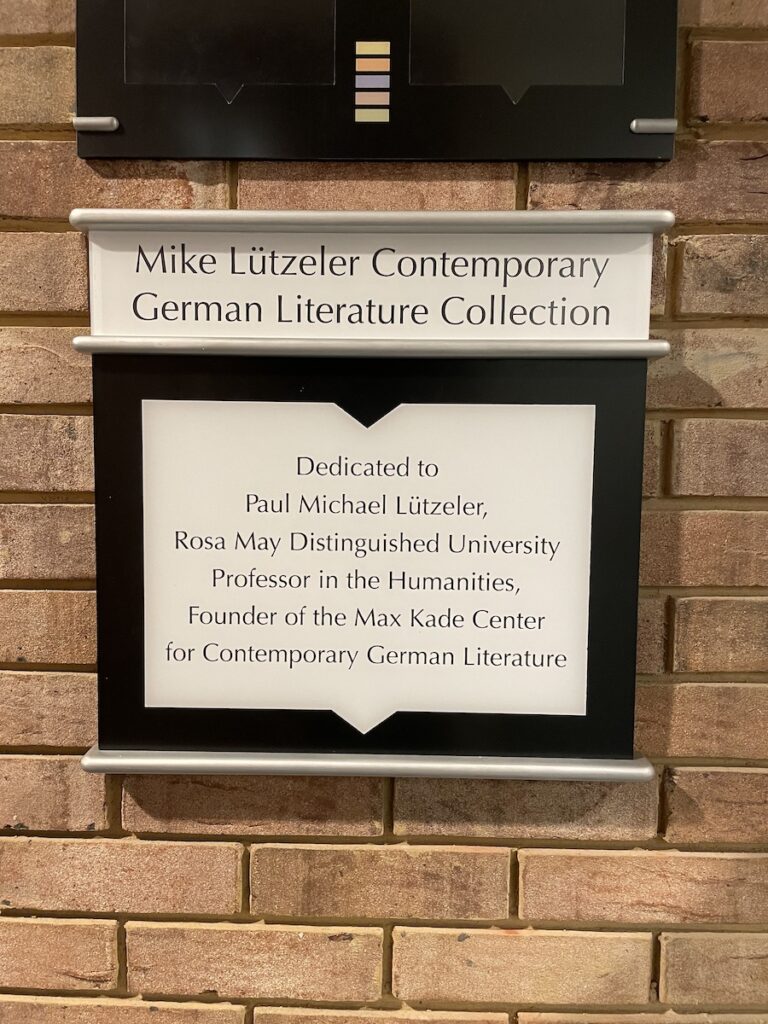
To remedy the lack of German-language literature in North America, Lützeler began to write to significant publishers soliciting donations of their published works, and quickly amassed a significant collection in collaboration with the University Libraries, with a bibliography of new items published each year. In 2016, the University Libraries began to directly acquire materials for the collection and compile the annual bibliography.
In addition, the German subject librarian (a role I was deeply fortunate to take on in 2019) adds additional information like publisher’s descriptions and subject headings to the catalog to increase discoverability for researchers. Currently, many new acquisitions are purchased on the Lützeler Contemporary German Literature Collection Fund established in 2017, and the collection was officially renamed in honor of Lützeler in 2018.
At the founding of the collection, it was impossible to foresee all the political upheavals and their impact on Germany, Austria, and Switzerland in the coming decades. In 1989, the Berlin Wall fell and the formerly divided Germany reunified in 1991. Reckoning with the legacy of the Third Reich and the Holocaust has continued to haunt these countries, as has increased attention to the dark legacy of Germany’s colonization of Africa prior to World War I. The unfettered globalization after the end of the Cold War, the digital transformation of society, the global financial crisis of 2008, the refugee crisis, the rise of a European far-right, climate change, and the current COVID-19 pandemic have left their own marks on German society and German-language literatures. The collection is both a document of these upheavals and a window into the way they have shaped German, Austrian, and Swiss identities.
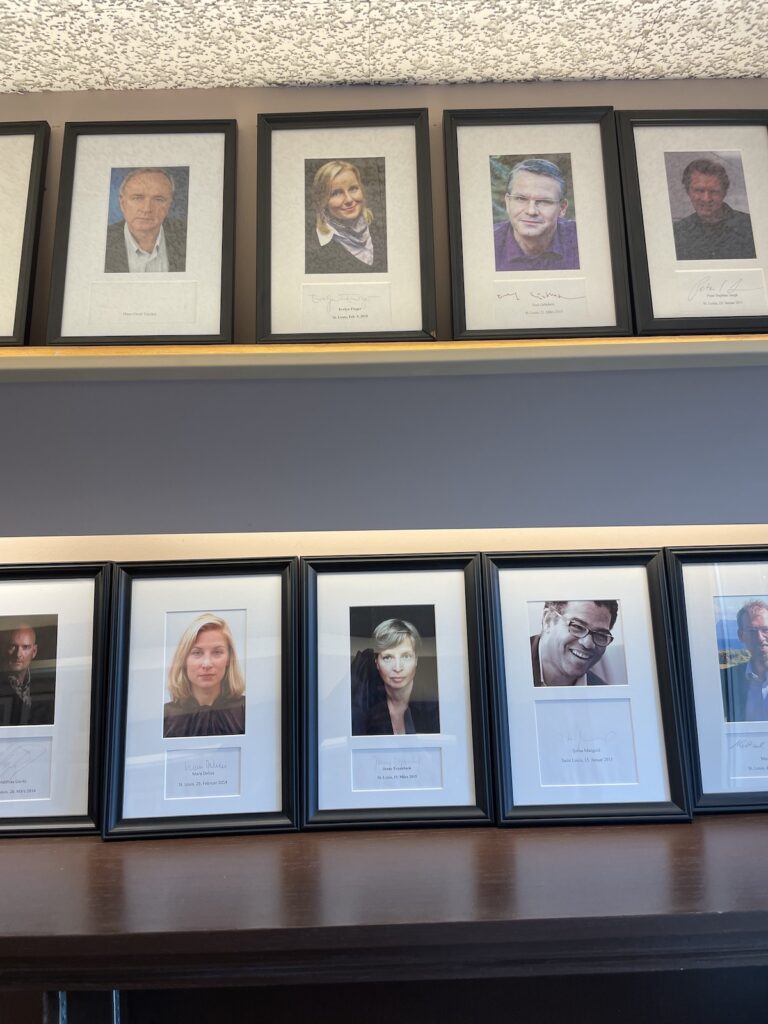
The collection is also a rich source to investigate transformations in the publishing and literary world. Genre fiction, particularly crime fiction, has increased in both general popularity and literary esteem and forms an important part of the collection. Small publishers devoted to graphic novels have increased the visibility of the art form in German-speaking countries and fostered talented German, Austrian, and Swiss illustrators, and the collection’s focus has expanded to include them. As diversity in German society has dramatically increased, mainstream publishers have often been slow to catch up, which is why the collection also includes smaller avant-garde, activist, or specialty publishers that are more likely to publish narratives by authors of color or other marginalized identities. While the collection includes bestsellers, award-winners, and critics’ darlings, it includes many small publishers, lesser-known authors, and experimental writing to reflect the true bibliodiversity of German-language publishing.
As of January 1, 2023, the collection has over 25,000 volumes. The Max Kade Center administers grants that allow outside researchers to visit in the summer to use the collection, and the collection is heavily used and borrowed through the Libraries’ extensive interlibrary loan networks. I look forward to seeing new breakthroughs in German literature and new insights that researchers find while analyzing the collection as it continues to grow with new and exciting acquisitions.
Book Recommendations to Understand Contemporary Germany
There are several fascinating books that explore the country’s past and present. The original German novels are housed in the Lützeler Collection.

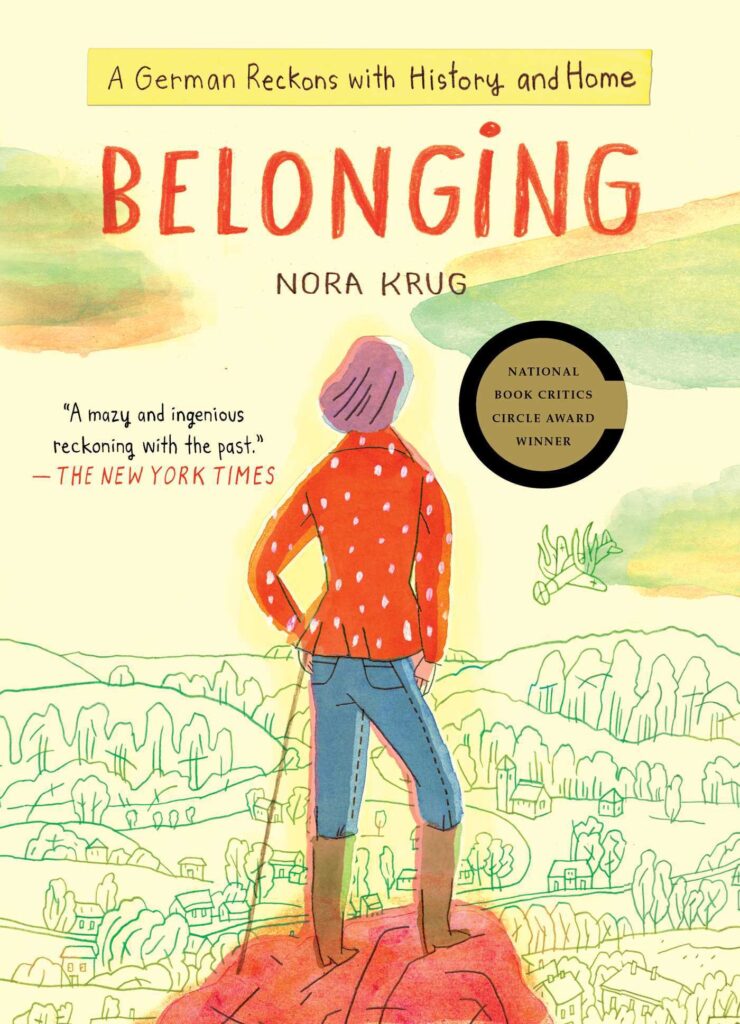
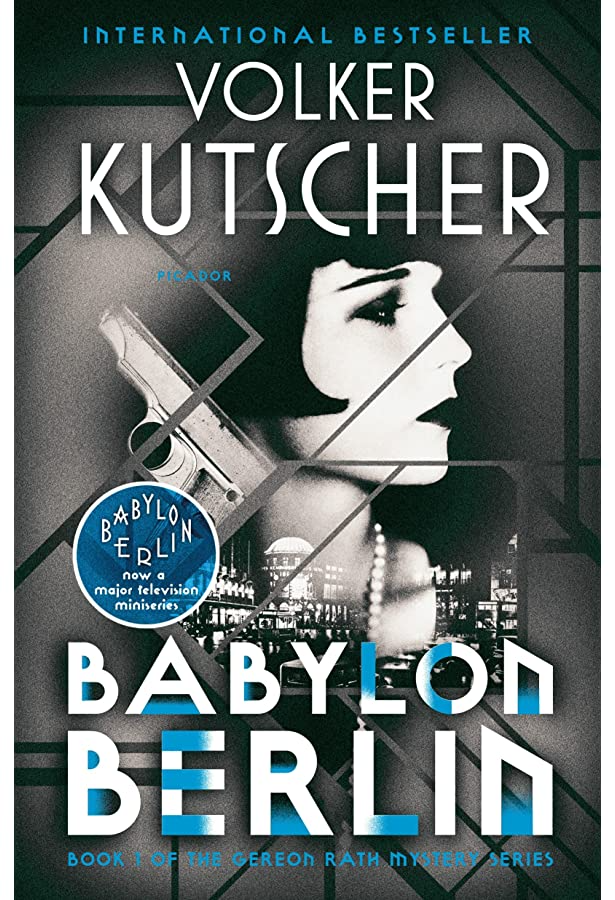
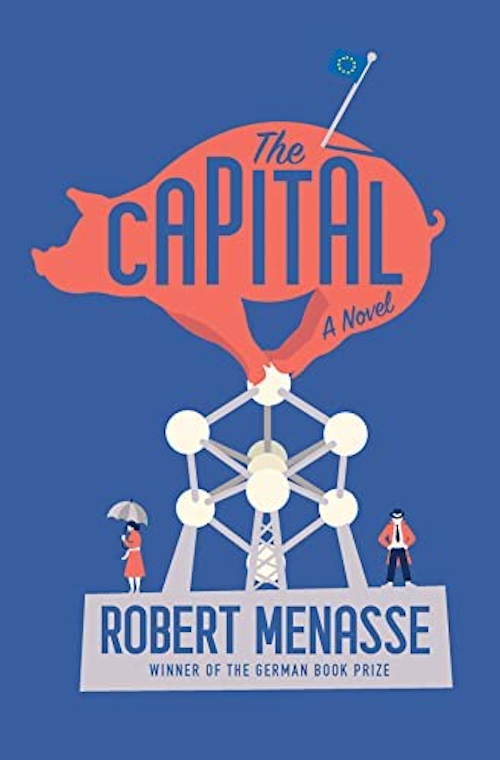
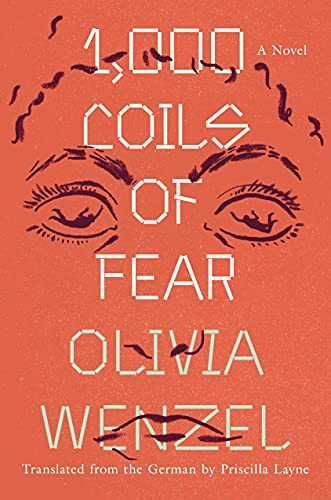
Yoko Tawada’s Memoirs of a Polar Bear. An account of an imaginative journey through recent German history as told by three generations of polar bears.
Nora Krug’s Belonging: A German Reckons with History and Home. A graphic novel about a contemporary German reckoning with her country’s Nazi past.
Volker Kutscher’s Babylon Berlin. A critically acclaimed crime novel set in Weimar Germany.
Robert Menasse’s The Capital. An Austrian satire about the European Union.
Olivia Wenzel’s 1,000 Coils of Fear. A novel about the contemporary Black and queer experience in Germany.
Walter Schlect is the Germanic languages & literatures and comparative literature subject librarian.
